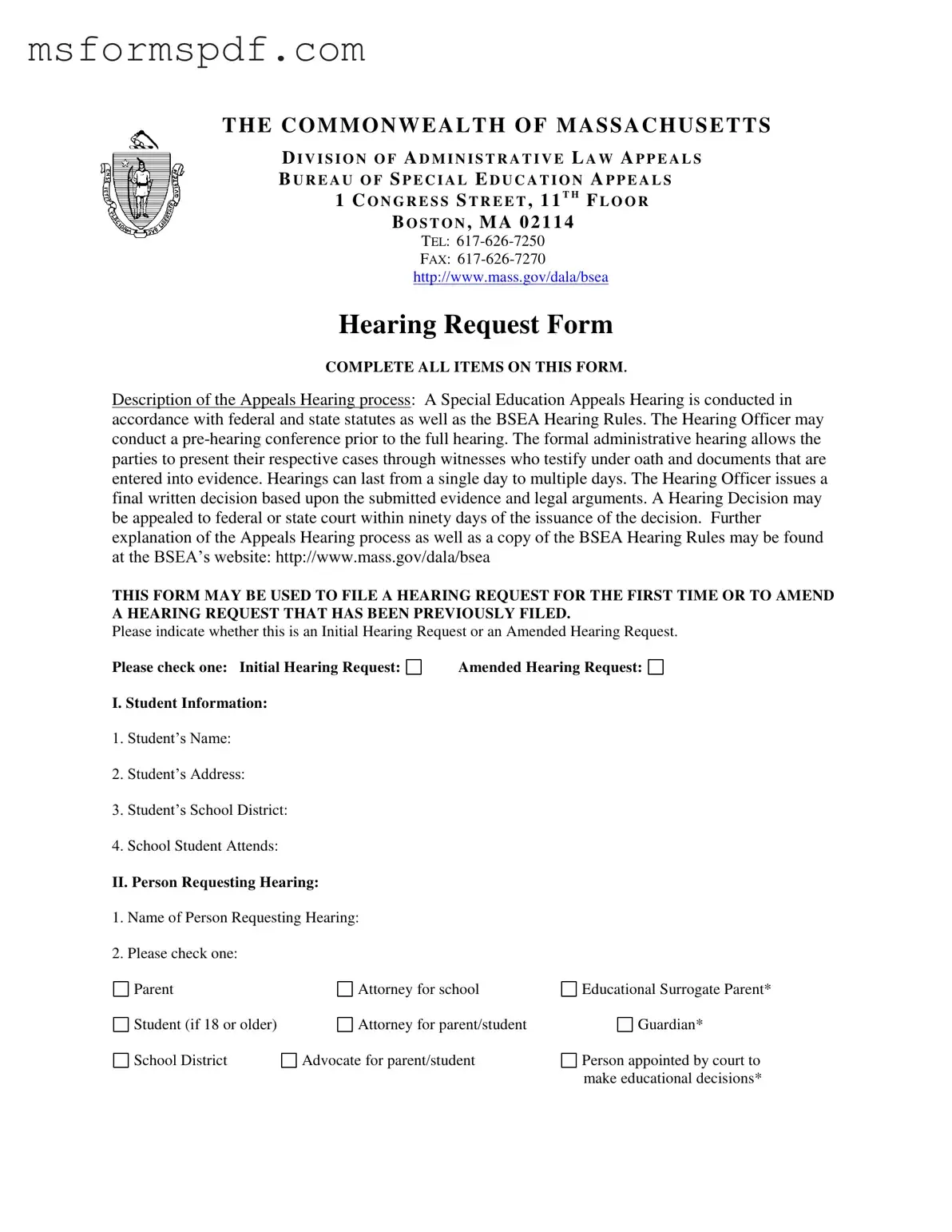Free Massachusetts Hearing Request Template in PDF
The Massachusetts Hearing Request form serves as a crucial document for individuals seeking to initiate or amend a request for a Special Education Appeals Hearing. This form outlines the necessary information required to present a case before a Hearing Officer, who will evaluate the circumstances surrounding a student's educational needs. Understanding the details and requirements of this form is essential for ensuring that all relevant issues are properly addressed during the hearing process.
Launch Editor Now

Free Massachusetts Hearing Request Template in PDF
Launch Editor Now

Launch Editor Now
or
➤ Massachusetts Hearing Request PDF Form
Just a moment — finish the form
Fill out Massachusetts Hearing Request digitally — no scanning, no printing.